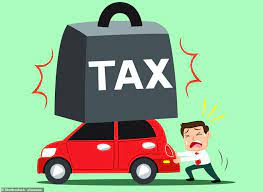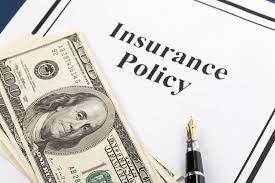
An Automobile's Engine and Wheels: How They Work and the Pros and Cons of Owning One. The engine and wheels are two of the most important parts of any automobile. If you drive an automobile, you rely on both the engine and wheels to get from place to place. The engine makes your car go, while the wheels let you steer and control it while in motion. There are many benefits to owning an automobile, but there are also some downsides you should be aware of as well before purchasing your next car. In this guide, we’ll discuss exactly how these two essential parts work and the pros and cons of owning one.
Why Are Cars So Popular?
Cars have become increasingly popular in recent years. In 1970, there were about 41 million cars on American roads; by 2010, that number had nearly tripled to 116 million. But what is it about automobiles that attracts so many people? There are a number of reasons why these vehicles have become so ingrained in American culture, including their safety and convenience benefits as well as their status symbol value. People like cars because they help them move quickly from place to place while protecting them from unpredictable weather conditions and providing a sense of security. Some people may view buying a car as a good investment because they know it will increase in value over time.
The Benefits of Driving
When you’re driving a car, not only do you get to travel to places you want to go (as opposed to waiting for a bus or train), but if you plan your route well, your gas consumption will be low. Using public transportation generally means an inconvenient schedule, high fares and lots of walking. But with a car, it’s easy to get from point A to point B quickly. Driving is also relatively inexpensive on average; if someone owns their own car outright or has a low monthly payment, they can easily drive themselves around—and might not have much else in their budget for public transportation.
The Downsides to Driving
In addition to affecting your wallet, gas consumption can be a drag. You’re stuck in traffic, sitting in a gas line or pulling into an expensive gas station on your way to work or vacation. Or you're running low on fuel and calling around for hours trying to find an open gas station. And don't forget how long it takes to fill up. And speaking of traffic, let's not forget all those cars around you – slowing you down! There are upsides though... so read on!
Expenses to Consider When Buying a Car
Before you buy a car, it’s important to know how much money you’ll need to put down. If your down payment is $3,000 or more, lenders will require private mortgage insurance (PMI), which will be added to your monthly car loan payment. While PMI doesn’t cost you any extra money up front, it can add hundreds or even thousands of dollars over time if you finance your purchase for longer than five years. And because you don’t get that money back until after you have paid off your loan in full, it might seem like an unnecessary expense now but could become a significant cash outlay later on.
Taxes on Vehicles
When you buy a car, truck, or motorcycle, there’s a good chance that you’ll have to pay taxes on it. The purchase price is typically higher than what you actually pay, thanks to things like sales tax. You also may have to pay property taxes based on where you live—which is why most states limit these taxes in some way. If you sell your vehicle for more than its original value, then you might owe capital gains tax. If you don’t have enough money to pay your taxes with cash, then you can always use your vehicle as collateral for a loan. It all depends on how much it’s worth at that point. It doesn’t hurt to check with your local DMV before buying or selling a vehicle so that they can tell you how much they expect it will be worth when they assess its value for taxes later on down the road.
Gasoline Prices Today
Diesel fuel is more expensive than regular gasoline (petrol) because it has a higher octane level. To help put that into perspective, regular gasoline contains an octane rating of 87 while diesel can have anywhere from 86 to 92 depending on its exact formula. Higher-octane fuel is less likely to ignite under pressure (pump burn-off) or when struck by a spark, reducing overall engine wear and improving performance. Petrol is cheaper but burns much faster than diesel—and if you're going down a long stretch of highway, you could run into problems if your tank isn't full enough before you depart.
Insurance Costs
According to a Consumer Reports survey, Americans pay an average of $500 per year for car insurance. When you look at it that way, purchasing liability insurance—the kind that covers damages you cause to other people’s property—is relatively cheap. However, if you have a brand-new car, comprehensive coverage (which covers damage from things like theft or vandalism) will probably cost more than $1,000 per year. And if you live in an urban area with a high rate of traffic accidents, your insurance could easily be double or triple that amount. Still, these numbers pale in comparison to what drivers in many other countries face; South Africa has some of the highest automobile insurance premiums in the world at $5 billion annually – almost 10% of its GDP!
Maintenance Costs
Are you thinking about getting a hybrid or electric car? There are many advantages to having an eco-friendly vehicle, but these options aren't for everyone. Before you decide to purchase a hybrid or electric car, consider how these types of vehicles work, as well as their pros and cons. If you still feel inclined to make an environmentally friendly vehicle purchase, take a look at our suggested hybrids/electric cars below.

Hybrid or Electric Car Advantages and Disadvantages
Hybrids and electric cars provide a range of benefits in terms of reducing emissions, improving fuel economy, and making it easier to use vehicles without sacrificing performance. At the same time, they also offer several key disadvantages that may not be obvious at first glance. This post will review each type of vehicle to help you decide whether owning one is right for you. It'll also tell you how they work in simple terms so that you can explain them to others when talking about them with friends or colleagues.








